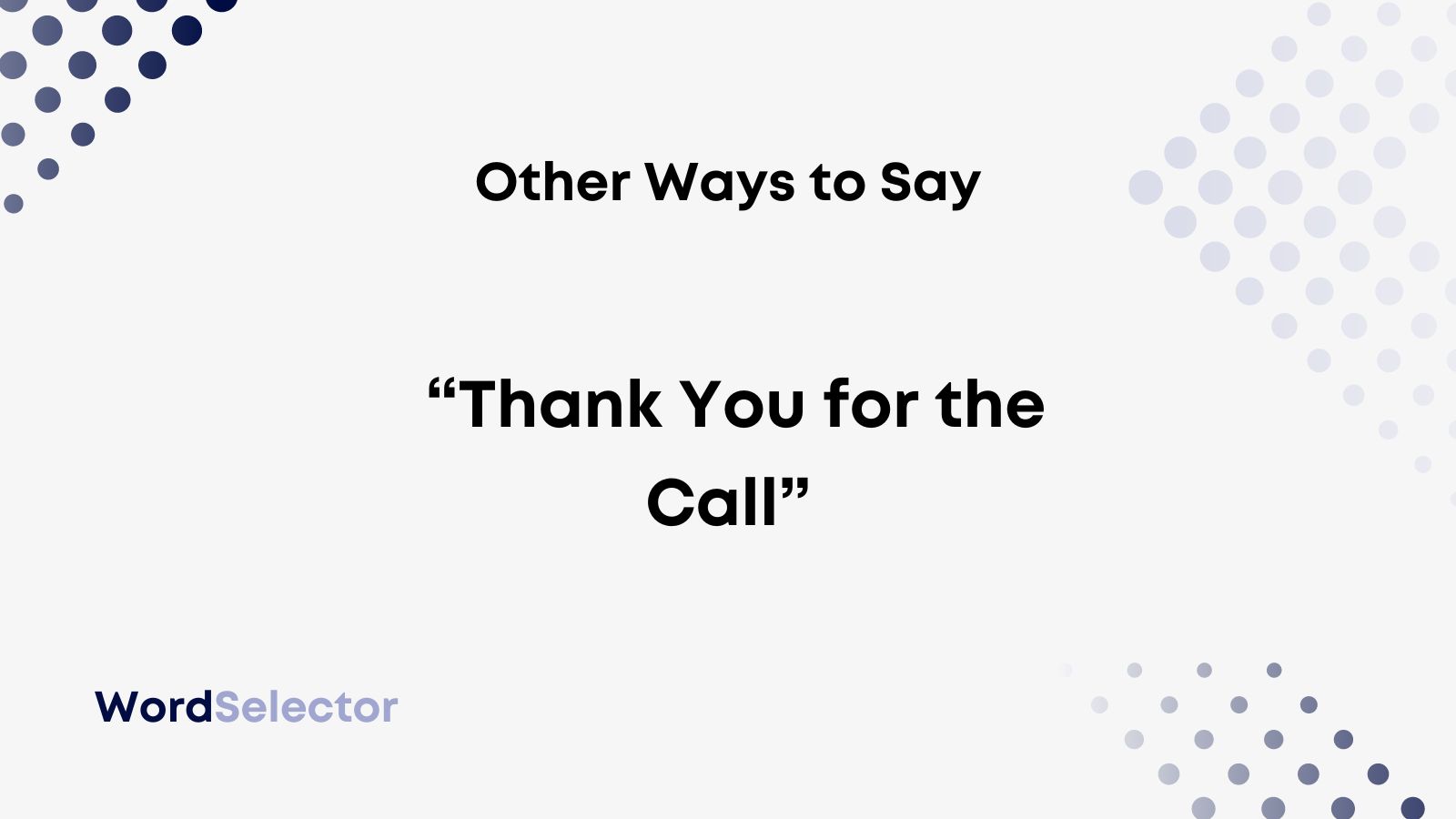A follow-up email after a call should be appreciative and helpful. You can cover the appreciative part by saying “thank you for the call,” but are you worried that it’s a bit overused?
Well, you’re in luck!
This article will explore some synonyms to show you how to say thank you for a call in an email.
Other Ways to Say “Thank You for the Call”
- I appreciated our conversation
- I’m grateful we got to connect
- I appreciate your call
- It was nice talking to you
- Thank you for your call
- Thank you so much for a pleasant call
- I value your call
- I’m so thankful for the conversation
- I’m appreciative of the phone call
- It was so great to hear from you
- Always great talking to you
- Thanks for such an insightful phone call
KEY TAKEAWAYS
- “Thank you for the call” is a simple phrase, but it works well when emailing someone after a phone call.
- “I appreciated our conversation” is a more formal synonym that works well in professional emails.
- Try “I’m grateful we got to connect” if you’d like a more informal choice.
But don’t leave yet! You can still read on to learn the best phrases showing you how to say “thank you for the call” in an email.
The final section will also touch on whether it’s correct to say “thank you for the call.” So, feel free to skip ahead if that’s of more interest to you right now.
I Appreciated Our Conversation (Formal)
Feel free to include “I appreciated our conversation” at the start of a formal email. It’s a professional and polite phrase to include after a phone meeting has ended.
We recommend sending something like this at the start of an email. It also works best when you’ve left it a few hours after your initial phone conversation.
“Appreciated” is the key here. It shows you’re thankful for a productive phone call. It’s a great way to let someone know that you got a lot out of your conversation with them.
Try using it when emailing a client. If you’ve recently called them to discuss a business matter, this is a great way to let them know how successful your chat was.
Most recipients will appreciate the more formal tone. It’s a great way to keep relationships with clients more professional.
It’s also worth reviewing this email sample:
Dear Miss Kichenside,
I appreciated our conversation earlier today. It was nice to be able to discuss these issues so openly.
Thank you so much,
Sian Grimes
I’m Grateful We Got to Connect (Informal)
There will come times when informal phrases are better than formal ones. Yes, even in emails. Sometimes, speaking in a more friendly and reasonable tone is more effective.
We generally recommend “I’m grateful we got to connect” for these situations.
It’s conversational and shows you were really happy to hear from someone. It still relates to a phone call, but it’s a polite way to send a message after having the phone call.
Of course, the best way to implement this phrase is at the start of an email. If you’d like to send a follow-up message, it’s good to start with this.
From there, you can continue talking about business as usual. Or, in the case of this more informal synonym, you may want to discuss something a little more personal or friendly.
This email example should also help you with it:
Hi Ben,
I’m grateful we got to connect today. It’s always nice to hear from you, especially when you provide such good insights!
Kind regards,
Brady Owen
Is It Correct to Say “Thank You for the Call”?
It is correct to say “thank you for the call.” It’s simple and direct, which makes it a highly effective phrase to include in a formal email.
You really can’t go wrong with it. It shows you’re happy to have spoken to someone earlier in the day or week. It’s polite and friendly, and most recipients will be happy to hear it.
Here’s an example email showing you how to use “thank you for the call” in a sentence:
Dear Brian,
Thank you for the call. I certainly feel like I learned a lot from our brief conversation.
All the best,
Alex Mockaitis
You can also use specific variations to make it more interesting. For example:
- Thank you for your call
Using “your call” makes it more personal. It’s a great way to show that you value the person on the other end of the call and not just the call itself.
Also, you can try this variation:
- Thanks for the call
“Thanks” is a quicker and slightly more informal way to write “thank you.” It’s good to use when you already know the recipient well.
Finally, you may refer to these extensions to help you keep your writing fresh:
- Thank you for the call just now
- Thank you for the call today
- Thank you for the call earlier
- Thank you for the call yesterday

